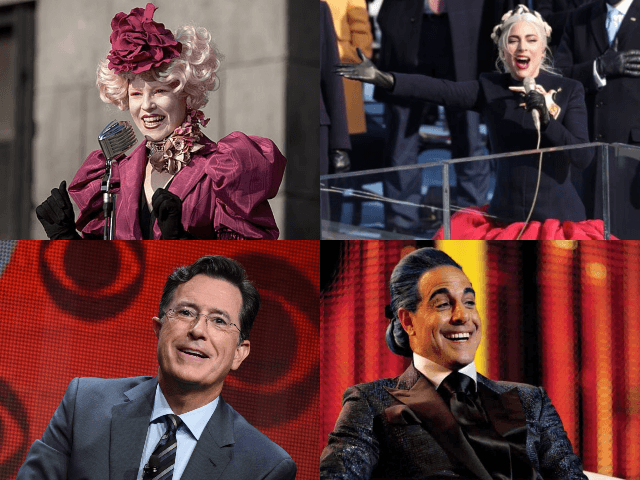Are you sick of 1984 references? I certainly am.
While the Orwell classic is brilliant in many ways, it’s become difficult not to cringe at yet another cliched reference to the Ministry of Truth. The right needs a fresher fictional dystopia.
Luckily, there’s a more recent story that needles and jabs at the tyrannical elements of our society with a similarly disturbing level of accuracy: The Hunger Games.
The Hunger Games have the outward appearance of a vapid millennial trilogy with nothing particularly interesting to say, in the vein of Twilight or Harry Potter. But don’t be fooled — the series contains a remarkably insightful depiction of what a 21st-century dystopia might look like.
See if the following sounds familiar:
A ruling class of corrupt, morally depraved elites congregate in the nation’s seat of power, called the Capitol.
Fond of self-indulgence, high fashion, and celebrity culture, they lead a life of luxury while commoners in the outer regions, called the Districts, suffer terminal economic depression.
The elites of the Capitol know they are despised by the common people, and they despise them right back. They delight in the suffering and ritual humiliation of the Districts, which they justify as punishment for a past act of insurrection.
The regime maintains control through a mixture of martial law and mass-media propaganda.
The chief mouthpiece of the regime is a late-night talk show host: a Stephen Colbert type figure called Caesar Flickerman who mixes official talking points with entertainment and celebrity interviews.
The crown jewel of the Capitol’s propaganda apparatus is the Hunger Games, an annual, televised spectacle in which representatives of each of the Districts (but not the Capitol itself) fight to the death in a giant arena for the amusement of the elites.
Ahead of every Hunger Games, the representatives — known as tributes — entertain the Capitol by attending the Capitol talk show circuit and wearing the latest in Capitol fashion.
If a tribute is fortunate enough to survive the Games, the ordeal doesn’t end there. The survivors of the Hunger Games, known as victors, enter a seedy, abusive world as permanent celebrities in the Capitol. It is revealed in later novels that the Capitol’s rulers use attractive victors as political bartering tools, loaning them out to influential elites to use as sexual playthings.
The heroine of the story, Katniss Everdeen, is the daughter of a coal miner from Appalachia. Forced to fight in the Hunger Games to save her sister from the same fate, she eventually defeats the Capitol by playing the mass media game better than they do.
Katniss uses the Games as an opportunity to broadcast her own acts of defiance, which trigger imitation in the Districts. A full-blown uprising follows, and the system swiftly crumbles. Too late, the Capitol realizes that its propaganda machine — built around celebrity and reality TV — created the perfect conditions for a dissident to acquire a national audience.
1984 does a fine job of explaining how control over language can lead to control over society. But where Orwell’s story falls short is in its rather sterile depiction of the ruling class. Big Brother, in the end, is just a sinister, distant idea — you never meet him. He doesn’t appear to be quite human. He may not even exist.
The elites of The Hunger Games, by contrast, are all too human. The story captures the decadence and depravity of an overly powerful metropolitan elite. It captures their mixture of contempt and fear of the common people. And, like the Stanford Prison Experiment, it captures their capacity for cruelty, if sufficiently radicalized against ordinary people and given enough power to manifest their fantasies.
It’s possible that The Hunger Games wasn’t intended to be a critique of modern society. The author of the books, Suzanne Collins, has never claimed it as such. The names of some of the characters — Cato, Plutarch, Seneca, Caesar — speak to the author’s classical influences. But if a story intended to depict the injustice and decay of late Rome bears a closer resemblance to modern society, that’s revealing in itself.
But perhaps the cleverest thing about The Hunger Games is that it attracted millions of millennial fans who appear to have completely missed its political undertones.
There’s a lesson for dissident storytellers: It seems you can convince reflexively liberal millennials to eagerly consume the most right-wing messages imaginable… as long as the main character looks like a Girlboss.
Allum Bokhari is the senior technology correspondent at Breitbart News. His new book, #DELETED: Big Tech’s Battle to Erase the Trump Movement and Steal The Election, which contains exclusive interviews with sources inside Google, Facebook, and other tech companies, is currently available for purchase.

COMMENTS
Please let us know if you're having issues with commenting.